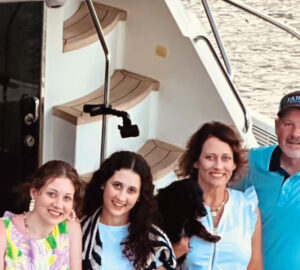St. Francis of Assisi said, “For it is in giving that we receive.” Little did he know that, in addition to passing along words of moral wisdom, he was also giving solid financial advice.
“Knowing you’re helping others through charitable giving is one of the best feelings in the world,” says Michael Howard, CEO of YouthBridge Community Foundation. But doing good also can be an opportunity to do well, he adds. “At YouthBridge, we help integrate charitable giving into your overall financial plan.”
YouthBridge, which began as an orphanage in 1877, connects community donors to community needs. “We’re the bridge that joins individual and business donors to nonprofits, nonprofits to resources, and financial advisers to charitable fund opportunities for their clients,” Howard explains.
Everyone involved benefits: “We enable donors to maximize their social impact by helping them to define and achieve their philanthropic goals,” he says. “We help area nonprofits, especially those focused on children and youth, become stronger and more financially sound. And our experts work with your financial advisers to create customized, tax-advantaged giving strategies that complement your tax and estate planning strategy and provide ongoing support to your favorite charities.”
A donor-advised fund (DAF), assets given to a community foundation for the purpose of redistribution to nonprofits, is more flexible and less costly than a private foundation when it comes to transferring wealth, Howard notes. It also offers numerous tax advantages. “Private foundations pay a 1 or 2 percent excise tax on net investment income per year, but there is no income tax on a DAF,” he says. “Also, a DAF allows donors to take a federal income tax deduction up to 50 percent of adjusted gross income for cash contributions, versus 30 percent of AGI for private foundations. And a DAF offers more favorable deductible limits for gifts of stocks, and you can contribute appreciated securities without incurring capital gains liability.”
A DAF, unlike a private foundation, is not subject to a 5 percent annual mandatory distribution requirement, and also offers the option to give anonymously, Howard adds. “In short, giving through a community foundation is an effective long-term approach to giving in a variety of situations, particularly if you want to grow your contributions tax-free over time, or need a charitable tax deduction now, but also want the flexibility to make distributions in the future. Best of all, these tax advantages not only benefit the donor, but leave more money available for gifts to the community.”
Just in time for the holidays,YouthBridge is offering yet another way to give and receive at the same time. “YouthBridge gift cards, which can be branded with our company’s logo, let your valued clients and employees support the qualified charity of their choice,” Howard says. “You build loyalty by being part of their values-based decision making— and the cards are tax deductible. Even more important, it’s an easy, fun way to strengthen the community through charitable giving.”








